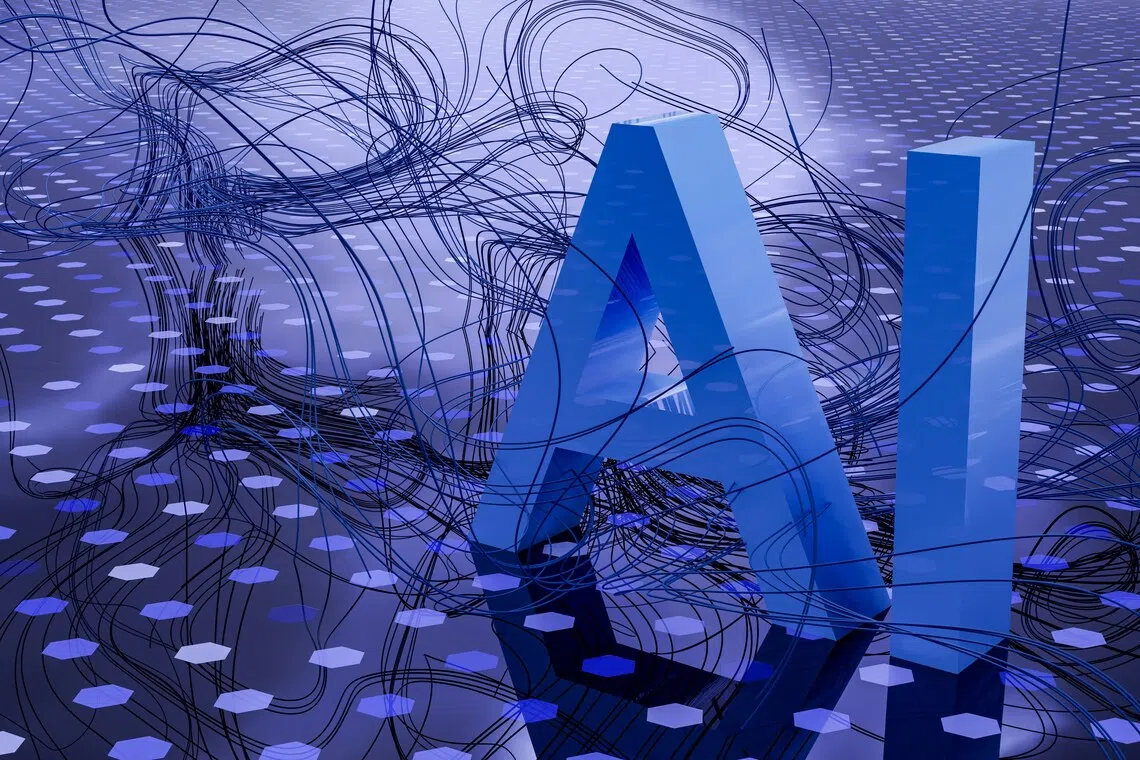South Korea investing $1.2 billion to teach AI from elementary school to the workplace
Sign up now: Get insights on Asia's fast-moving developments

The plan also calls for expanding AI admission tracks at science and specialised high schools.
PHOTO ILLUSTRATION: UNSPLASH
Follow topic:
SEOUL – After South Korea scrapped its ambitious plan to introduce artificial intelligence-powered digital textbooks, the government is taking another step to cement its standing as a global AI leader.
It will be investing 1.4 trillion won (S$1.25 billion) to nurture AI talent from elementary school to postgraduate researchers.
South Korea’s Education Ministry on Nov 10 announced its first national blueprint titled AI Talent Development Plan For All aimed at strengthening AI capabilities throughout a person’s lifetime.
The plan, the first of its kind, outlines how South Korea aims to become one of the world’s top three AI powerhouses by building a complete human resources pipeline across the education system, while preventing further “brain drain”.
The country also faces growing concerns over its AI talent pipeline, as many top-performing students continue to shy away from science and engineering fields, gravitating instead toward medicine and other high-paying professions.
According to the 2024 Global AI Index by Britain-based analytics firm Tortoise Media, South Korea ranked sixth among 83 countries in overall AI competitiveness, reflecting its robust infrastructure and government investment.
However, in the talent category – which measures the quality and quantity of AI specialists, research output and workforce readiness – South Korea ranked 13th, underscoring a persistent shortage of skilled professionals.
Fast track for AI talent
To accelerate the supply of high-level AI professionals, the government will introduce a new “fast track” programme that allows outstanding students to complete their bachelor’s, master’s and doctoral degrees in just 5½ years – cutting the typical academic timeline of more than eight years.
The system is designed to enable top researchers to enter industry or academia in their early 20s.
The plan also calls for expanding AI admission tracks at science and specialised high schools, which will almost double from the current 14 to 27 institutions in 2026.
In addition, to retain South Korea’s top scholars – many of whom are being recruited by foreign universities – the government will consider establishing a “National Distinguished Professorship” system, allowing elite researchers to continue teaching and conducting research beyond the current retirement age of 65.
The measure would apply to both public and private universities.
Supporting regions to bridge AI gaps
Acknowledging concerns that AI advancements could widen the gap between Seoul and other regions of the country, the government will strengthen regional AI universities as local innovation hubs.
Three national base universities will receive a combined 30 billion won in 2026 to establish AI-focused colleges, develop region-specialised programmes and build infrastructure such as GPU computing facilities.
The initiative also introduces joint research clusters under the Brain Korea 21 programme, encouraging collaboration between regional and smaller universities.
AI-focused departments and graduate programmes will expand their admission quotas to meet growing demand for skilled researchers, with relaxed conditions for public universities that already meet staffing standards for teaching.
To enhance industry-academic cooperation, the government will expand corporate-linked degree programmes tailored to industry needs. Companies will be encouraged to establish in-house graduate schools and train AI professionals internally.
AI education in grade schools
In elementary and secondary education, the government will invest 900 billion won in elementary and middle schools, and 500 billion won in high schools to integrate AI learning from the ground up.
Starting in 2026, AI Education Support Centres will be established at three regional education offices, expanding to all 17 nationwide by 2028. These centres will provide training for students, parents and teachers, and connect schools with universities and businesses to support AI-focused career programmes.
AI-oriented Meister high schools will be newly designated, with seven added each year through 2030.
Specialised vocational high schools will also be restructured toward AI-related disciplines, raising the share of departments offering AI courses from 20 per cent today to 50 per cent by 2030.
All elementary, middle and high schools will be equipped with intelligent science labs by 2027, up from 60 per cent today, to enable hands-on learning in robotics and data-driven experiments.
The number of AI-focused schools, which offer extra information-technology courses and AI clubs, will grow from 730 in 2025 to 2,000 by 2028.
Meanwhile, the government plans to revise the national K-12 curriculum to formally include AI education as a core subject.
The blueprint emphasises that AI education will not be limited to specialists but extended to non-STEM students and adult learners.
South Korean Education Minister Choi Kyo-jin described the initiative as central to South Korea’s economic and technological future.
He said: “AI talent development is a matter of national survival that we must all work on together.
“The Education Ministry will ensure that every citizen can use AI easily in everyday life, while fostering diverse talent to lead the era of AI transformation.” THE KOREA HERALD/ASIA NEWS NETWORK

